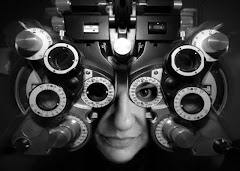There was just no way I wasn’t going to be there as the film “It Might Get Loud,” premiered yesterday in Seattle at the Egyptian Theater. I saw the trailer for it earlier in the summer and I went OOOOH and WOW and WOW and OOOOH, because any film featuring Jimmy Page, The Edge (Dave Evans), and Jack White messing around on guitars is FOR ME.
Well, I not only liked it, I LOVED it. I was so excited after I came out of the theater that I could not even collect all my thoughts to write this; I had to sleep on it all. The film is billed as “a documentary of the electric guitar from the point of view of three rock legends.” It is so much more. The movie was able to illuminate what every rock journalist, filmmaker, critic, photographer or fan hopes to dig out, and so rarely does – how does a successful artist do what they do? How do they become what they are? What is the spark that changed everything? To be able to show us that, for each these three very different musicians, is really something. It is a glimpse into the deliberate art and happy accident of the creative process, and the things that converged to make three ordinary men evolve into deeply influential and respected musicians.
I guess you would have to say that Jimmy Page must be the most legendary and influential of the three. His work in Led Zeppelin as not only a guitarist but as a songwriter and producer is seminal, even though some of his songs were more “interpretations” of older blues and folk tunes rather than completely original work, as fine legal systems have pointed out. But be that as it may, his style of playing is all his own as is his sound, and great they are. Into his 60s now, Page still obviously loves to play and can still knock out the loud and cool as good as -- or better -- than anyone. He seemed very invigorated to play with The Edge and Jack White, and it seemed a shame that he doesn’t get to play out much anymore.
Yes, my frown went on when The Edge asked Page, “You played on the Kinks’ records, right?” and the best Page could do was say, well, yes, but it all got overblown a bit. How about taking that little opportunity to take the three seconds to say, “Yeah, I played some rhythm guitar and tambourine here and there for them early on, but Dave Davies played all the solos and had that great sound.” Too much to ask for, still. I also went HEY! WTF! when an old clip of Page playing with the Yardbirds was a sync to “Heart Full Of Soul,” performed by guitarist JEFF BECK. Helloooo! And let’s not forget the end credits when Page is listed as a producer. Ha ha, man, you always get your piece of the pie, doncha.
Where I connected with Page in the film, strongly so, was during the scene when he is in his music room at his home, and pulls out a record of Link Wray’s “Rumble.” He sets the needle into the groove, anticipating the grit and grind of the dirty fuzzy guitar sound. When it comes, he beams. Instantly, the age comes off his face; he is a young boy again. You can actually see his love for rock n’ roll in that moment and an openness rare to him. I knew that look on his face, that burst of joy that an amazing piece of music can bring. I stood right with him there, rocking out and playing air guitar, even though he was on the screen and I was sitting in my chair in the theater, eating popcorn.
The Edge is of my generation, and helped make U2 one of the biggest bands ever in rock via his effect-driven guitar sounds. The ringing, repeating, chorus-laden riffs were fresh-sounding and turned an admittedly-incompetent power pop/punk cover band into their own beast with power and elegance. Dave Evans, like Page and White, is a tinkerer. All three were driven to construct, deconstruct, figure the hows and whys of things. Evans admits this trait in him is both his success and his curse. He is still compelled, via a huge box of blinking electronic effects with endless combinations, to search for the right sound for each new song. Good thing he seems to be an unusually laid-back and normal kind of cat, otherwise he might have kicked that box to death years ago. He knows that underneath his effects is a simple style of playing, made even more pure and clean by playing chords with fewer notes, as he shows us. He knows he is not a shredding guitar virtuoso, but he knows that he found something special, too.
Jack White by far is the most dramatic personality of the guys. He is still a young man (34) and is into a career that keeps climbing higher by the year. He runs on the fuel of a young man – angst, anger, tension, the fight against It All. He tells us he wants and needs the struggle, that if it does not exist, he will create one. This is not an uncommon aspect to creative personalities, the idea that if you are not in turmoil, you cannot create work of depth. He still has fire that seems to burn out of his pasty white skin and dark unblinking eyes. Perhaps as the youngest of ten children, he was always going to be the one fighting for his place. That is what he knows.
White found his way out of the upholstery shop in Detroit he worked at when his pal wanted to play drums, defaulting White to guitar. Soon, he formed The White Stripes with “sister” Meg White on drums, pretty much just trying to replicate Son House ultra-stripped blues music if performed by The Flat Duojets, he tells us. His jittery, aggressive guitar style is a blend of traditional blues, rock, and country, as if filtered through some kind of modern imagined cocktail of meth, still whiskey from the back hills, and an uncertain, hostile world.
There is a beautiful story arc to this film, as the histories of the three weave in and out, their commonalities and differences revealed to us. It is not something you would normally expect in a movie about rock n’ roll, which is why the film is unexpectedly rich. The filmmakers were able to use the love that Page, Evans, and White have for guitar and for music to uncover something of the people they are away from the distorting lens of stardom. Any good story has something the audience can relate to, be touched by, some aspect of shared humanity, commonality. “It Might Get Loud” has that. And it does get loud, and that is good, too.
OOOOH.
WOW.
ITMIGHTGETLOUD
Saturday, August 29, 2009



